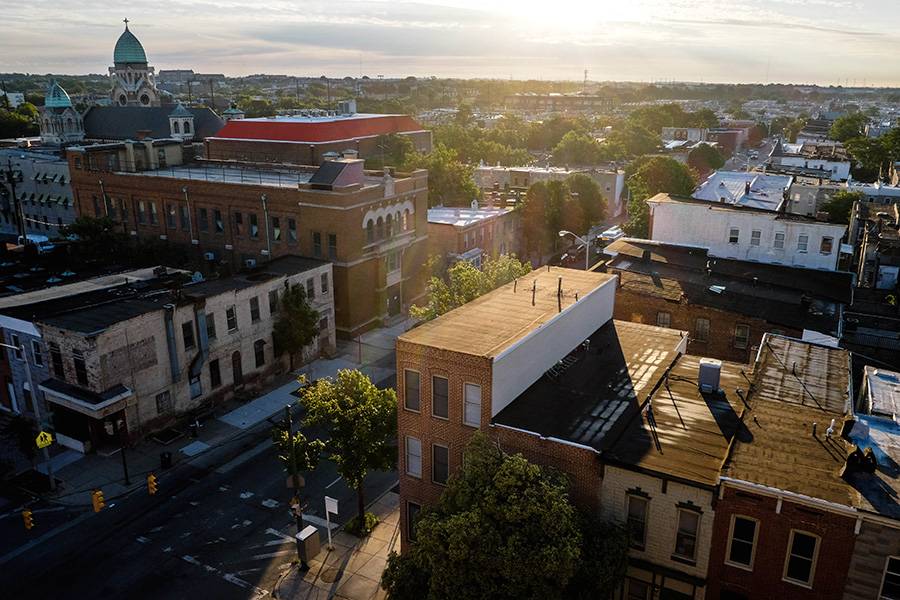America's cities are disproportionately affected by instances of trauma and poverty, studies have shown. Without access to resources for coping with trauma, these cycles can persist for generations.
In Baltimore and across the country, health care providers are increasingly recognizing the effects of these stressors on the health and well-being of their patients, and they are working toward developing targeted interventions that support city residents who have experienced trauma in order to create healthier, more vibrant communities.
A recent grant of $1.6 million from the Stavros Niarchos Foundation to the Johns Hopkins Bloomberg School of Public Health will foster collaboration with the Johns Hopkins Medical Institutions and community partners to implement and expand services in East Baltimore for survivors of violence. The initiative is a response to the community's request to provide survivors of violence and other traumas with more support and services that promote healing.
"We're extraordinarily grateful for the Stavros Niarchos Foundation's commitment to our city and its enduring partnership with Johns Hopkins," said Ronald J. Daniels, president of Johns Hopkins University. "This timely initiative has the potential to make an immediate impact on our neighborhoods and our neighbors' lives, as well as serving as a national model for partnership between communities and institutions as we seek to meet a shared need to care for people affected by trauma."
The grant underscores SNF's growing support in the Baltimore area.
"At the Stavros Niarchos Foundation, we are very proud to be supporting this effort by Johns Hopkins to bridge the gap in care for survivors of violence and trauma," said Andreas Dracopoulos, co-president of the SNF. "Timely and holistic support constitutes a critical first step in the healing process for individuals and their communities."
The grant will enable Johns Hopkins Hospital to better integrate its work with the efforts of community collaborators, decrease the time between incident and response, and increase the capacity of community institutions to support healing.
"The resources provided by the Stavros Niarchos Foundation will be used to advance and expand ongoing efforts of the Johns Hopkins Hospital to become more trauma-informed and trauma-responsive by increasing clinical services and interpersonal supports in the hospital," said Philip Leaf, director of the Center for Adolescent Health and a professor in the Bloomberg School's Department of Mental Health, who is leading the initiative. "We also will be working to support the many care givers and first responders who already are deeply involved in extending healing in East Baltimore."
Leaf will work with Carol Vidal, assistant professor of psychiatry and behavioral sciences at the School of Medicine, and Nathan Irvin, assistant professor in the School of Medicine Department of Emergency Medicine, as well as individuals who live and work in East Baltimore such as ministers and leaders in local congregations, community association members, and staff in schools and recreation centers.
Recently the project team facilitated trauma training for 29 school-based mental health workers, including Baltimore City Public School psychologists and social workers. In addition, the initiative is working with the Chaplains Program at The Johns Hopkins Hospital to better prepare its trainees and staff to deal with trauma.
Posted in Health, Politics+Society
Tagged east baltimore, poverty, baltimore city, trauma










